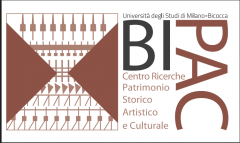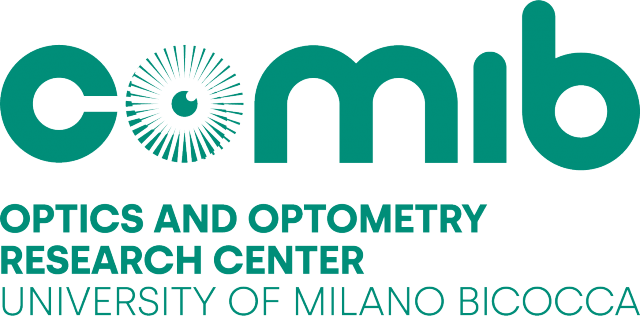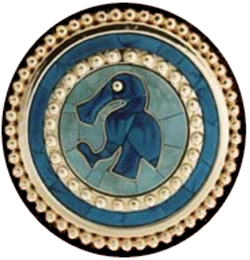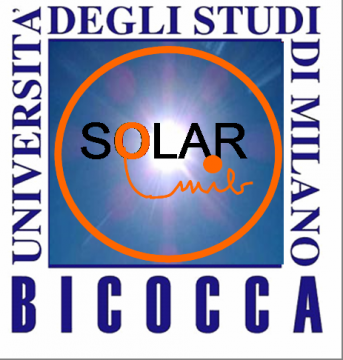Research Centers
The ABCD research center of University of Milano – Bicocca promotes and disseminates gender research and gender studies.
The main aims of the Center are:
- to encourage scientific cooperation between scholars from different disciplines, with the aim of identifying new directions for gender-sensitive research, at both national and international level;
- to disseminate gender-sensitive knowledge through research projects and research publications;
- to organize conferences, seminars, meetings and to support events to disseminate gender knowledge and gender studies;
- to facilitate opportunities for discussion within and outside the University about gender issues and to support cooperation with communities, associations, and institutions for a better integration of the gender dimension in research programs
- to promote education activities on gender differences and inequalities
Delegate of the Department of Material Science in the Scientific Committee of the ABCD Center:
Prof. Livia Giordano
e-mail: livia.giordano@unimib.it
phone: +39 02 6448 5180

BIPAC encourages the Third Mission of the University System and the University Social Responsibility. Promotes infotainment, public engagement programs as well as cultural and educational activities on Cutural Heritage in the wider possible contexts. All the Departments of the University of Milano-Bicocca are members of BiPAC.
Scientific Director:
Prof. Anna Galli
For information: centrobeniculturali@unimib.it

Interdepartmental initiative to strengthen Quantum Technology research and innovation, training, and technology transfer in University of Milano-Bicocca. The initiative encompasses research on superconducting quantum devices, advanced quantum materials, non-classical single photon sources and detectors, semiconductor spin qubits, quantum computing and artificial intelligence.
The initiative leverages collaborations with national and international research institutes, such as Istituto Nazionale di Fisica Nucleare (INFN), Fondazione Bruno Kessler (FBK), Istituto Nazionale per la Ricerca Metrologica (INRiM), National Institute for Science and Technology (NIST), and Superconducting Quantum Materials and Systems Center (SQMS) at Fermilab.
Scientific Committee: Prof. Marco Fanciulli (Dipartimento di Scienza dei Materiali), Prof. Claudio Ferretti (Dipartimento di Informatica, Sistemistica e Comunicazione), Prof. Alberto Leporati (Dipartimento di Informatica, Sistemistica e Comunicazione), Prof. Angelo Nucciotti, Scientific Director (Dipartimento di Fisica “G. Occhialini”), Prof. Stefano Sanguinetti (Dipartimento di Scienza dei Materiali), Prof. Alberto Zaffaroni (Dipartimento di Fisica “G. Occhialini”).
Delegate of the Department of Material Science:
Prof. Stefano Sanguinetti (Deputy director)
e-mail: stefano.sanguinetti@unimib.it
tel: 02 6448 5156
The C.A.S.A. Interdepartmental Center involves all the University Departments. It was born from the desire to constitute a national point of reference for studies on the student housing condition and the planning and monitoring of services to support living, which can integrate with the already existing instruments of the Right to University Education. The Center aims to monitor the condition and medium-long term housing trajectories of the student population of the University of Milano - Bicocca, and to identify the evolution of needs with a view to developing strategic directions to increase the opportunities for social inclusion offered by the University.
Delegate of the Department of Materials Science in the Scientific Committee of the C.A.S.A. Center:
Prof. Anna Vedda
e-mail: anna.vedda@unimib.it
phone: 02 6448 5162

The University Research Center in Optics and Optometry of Milano-Bicocca (COMiB), established in 2015 at the Department of Materials Science, is a platform for the coordination and aggregation of the various skills that operate in the field of vision science.
The main objectives of the Center are:
- Promote and develop new research in the field of optometry and contact lenses, supporting the interaction and collaboration between different disciplines such as Optics and Optometry, Physics, Materials Science, Psychology, Biology, Chemistry, Medicine, IT, Biostatistics
- Activate collaborations with public and private bodies (eg schools, sports centers, companies) for the creation of screening and visual analysis in the field
- Activate both national and international research projects in the field of vision science.
- Organize events, seminars, training activities for professionals in the sector, also proposing itself as an Academy to companies interested in training courses of high professional level by making available the structure and skills of the Center.
Director:
Prof. Alessandro Borghesi
e-mail: alessandro.borghesi@unimib.it
tel. 02 6448 5161

Members of CUDAM are the university laboratories involved in dating for Geological and Environmental Sciences and Cultural Heritage. The Center currently comprises about 30 members from the four departments affiliated with the Center:
- Department of Materials Science
- Department of Earth and Environmental Sciences
- Department of Physics "G. Occhialini"
- Department of Computer Science, Systems, and Communication
The purpose of the Center is to promote study and research on dating methods for Geological and Environmental Sciences and Cultural Heritage, and their application.
Main activities developed include dendrochronology, dating using OSL, TL, and radiocarbon, dating with radioisotope techniques, studies of ancient materials, and computer science applications for management and enhancement of cultural heritage through integrated systems.
Established in 2004, CUDAM is based at the Department of Earth and Environmental Sciences, while laboratories dedicated to archaeometric dating are located at the Department of Materials Science.

The Laboratory for Epitaxial Nanostructures on Silicon and Spintronics (L-NESS) is an Inter-University research center of the University of Milano Bicocca and the Polytechnic of Milano, founded in 2012 by Prof. Leo Miglio of the Department of Materials Science, with colleagues from the Physics Department of the Polytechnic of Milano (Prof. Franco Ciccacci and Prof. Alfredo Dupasquier) and Prof. Hans von Känel from the Physics Department of the Zurich Polytechnic (ETH Zürich). The Scientific Committee sees the participation, by the Department of Materials Science, of Prof. Simona Binetti, Prof. Leo Miglio, Prof. Francesco Montalenti and Prof. Stefano Sanguinetti.
The registered site, at the Polo di Como of the Polytechnic of Milano, hosts the MBE and the LEPECVD deposition systems, a cleanroom with optical lithography, an X-ray diffraction apparatus, two atomic force microscopes, an electrical station and a e-beam lithography apparatus. Additional L-NESS sites are present at the Department of Physics of the Polytechnic of Milano and at the Department of Materials Science of the University of Milan Bicocca. In Milano Bicocca University instrumentation and skills of photoluminescence and Raman spectroscopy, growth and modeling of epitaxial heterostructures and three-dimensional nanostructures, growth and characterization of PV cells are present.
The current research activities are aimed at the development and study of devices realized by the integration of semiconductors of the IV-IV and III-V groups for microelectronic, optoelectronic, quantum photonics and energy applications. A relevant line of research, dedicated to graphene and its applications in the field of electronics, is also active and well inserted in the EU flagship.
Several researchers, or professors, of the Como site are foreigners. L-NESS thus provides a unique opportunity to work in an international environment, fully equipped with high-tech deposition and micro-manufacturing tools.
Contacts:
Prof. Stefano Sanguinetti (Deputy director)
e-mail: stefano.sanguinetti@unimib.it
tel: 02 6448 5156

The MIB-SOLAR Center was established at the Department of Materials Science, University of Milano-Bicocca, to promote and encourage study and research of new materials and devices related to solar energy in its various forms including:
- solar energy as a source of renewable energy in photovoltaic processes;
- solar energy as a source of renewable energy in photovoltaic and photocatalytic effects of different processes.
Our mission is to foster cutting-edge scientific and technological progress and disseminate knowledge in the field of solar energy.
In particular, the Center aims to:
- promote the aggregation and coordination of researchers in the field of solar energy through the integration and interdisciplinary cooperation in scientific and technological research;
- promote participation in joint national and international research projects on solar energy;
- promote education and training of young students/researchers in the field of materials science and technology for solar energy, with emphasis to gender issues and applicants from economies in transition;
- contribute to the growth of the intellectual property of the University of Milano-Bicocca in the field of solar energy and, in general, advanced technology;
- create and organize relationships with institutions, public and private research centers in the field of solar energy and make them available the expertise, know-how, skills, and equipment of the Center;
- create and organize activities to support large and SMEs operating in the field of solar energy, including Technology Transfer for a successful transition from research to market;
- promote seminars, conferences, meetings, and workshops to spread and share knowledge and activities in the field of solar energy in cooperation with public and private agencies and scientific associations;
- create and organize activities, and disseminate knowledge and best practices about renewable energies, namely solar energy, to first cycle schools and education centers;
- support the establishment of new companies with special regard to university spin-off companies.
Director
Prof. Simona Binetti
e-mail: simona.binetti@unimib.it
tel: +39 02 6448 5177
The NanoMedicine Center “NANOMIB” of the University of Milano-Bicocca is a biotech platform whose mission is the design, synthesis and validation of nano-devices for regenerative medicine, therapy and diagnosis of human diseases.
Nanomib’s mission is to accelerate the path from laboratory experimentation to the application of new methods in human diagnostic and therapeutics of many diseases that are still largely untreated today: “from the bench to the bedside”, promoting an effective link with pharmaceutical and medical industries. The Center brings together the skills of Milano-Bicocca researchers in various research areas (chemistry, materials, physics, biophysics, biochemistry, biology, physiology, biotechnology, informatics, statistics, toxicology, and almost all clinical specializations) and different Departments (Medicine and Surgery, Biotechnology and Biosciences, Physics, Materials Science, Earth and Environmental Sciences, and Informatics, Systems and Communication) to create new models of care and prevention in the field of therapy, diagnostics and regenerative medicine.
The activities of the Center are reflected in scientific publications, participation in national and international research projects, Conferences and – in the field of technology transfer – patenting, patent licensing and creation of Spin-Offs. The researchers of the Center are also involved in the development of human capital within several PhD programs at the University of Milano-Bicocca (programs in Translational Medicine, Nanostructures and Nanotechnologies, Material Science, Physics…) also in co-tutorship with international universities (e.g. University of Pays Basques, San Sebastian DIPC (Spain); University of Porto; University of Sao Paulo (Brazil)).
Director of NANOMIB:
Prof. Davide Prosperi
e-mail: davide.prosperi@unimib.it
Deputy Director:
Prof. Cristiana Di Valentin
e-mail: cristiana.divalentin@unimib.it